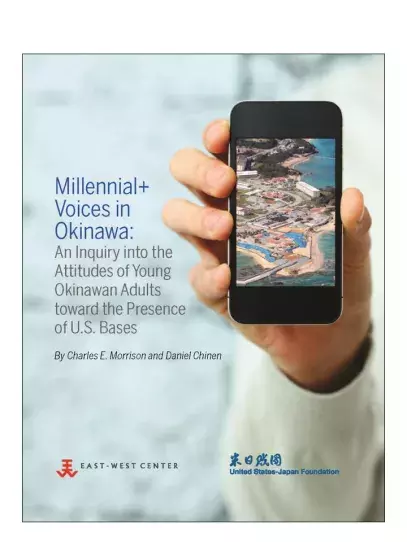Error message

The largest U.S. military complex in an allied country occupies 15 percent of the 466-square-mile island of Okinawa. This is the only place in the world where continuing demonstrations occur against a U.S. base presence and where the presence of U.S. bases dominates local politics and media. It has long been observed that most protesters are elderly. But what do Okinawans born since 1972, when Okinawa reverted to Japanese sovereignty, think about the U.S. presence? Through interviews and an on-line survey, this study suggests that post-reversion Okinawans may be resigned to the bases, weary of base-dominated politics, and eager to have greater personal contact with the U.S. military community. Okinawans in this age group also strongly believe that Okinawa hosts more than its fair share of U.S. bases in Japan, however. Most want to fix what they perceive as base-related problems, and they oppose building a new base at Henoko to replace the old Marine Corps Air Station at Futenma. The study urges a review and redirection of U.S. public diplomacy programs in Okinawa.
The largest U.S. military complex in an allied country occupies 15 percent of the 466-square-mile island of Okinawa. This is the only place in the world where continuing demonstrations occur against a U.S. base presence and where the presence of U.S. bases dominates local politics and media. It has long been observed that most protesters are elderly. But what do Okinawans born since 1972, when Okinawa reverted to Japanese sovereignty, think about the U.S. presence? Through interviews and an on-line survey, this study suggests that post-reversion Okinawans may be resigned to the bases, weary of base-dominated politics, and eager to have greater personal contact with the U.S. military community. Okinawans in this age group also strongly believe that Okinawa hosts more than its fair share of U.S. bases in Japan, however. Most want to fix what they perceive as base-related problems, and they oppose building a new base at Henoko to replace the old Marine Corps Air Station at Futenma. The study urges a review and redirection of U.S. public diplomacy programs in Okinawa.




